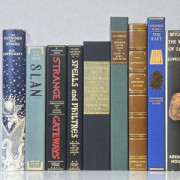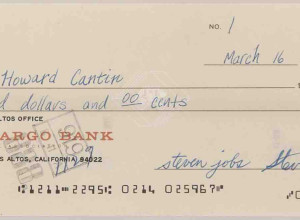Index on Censorship Archive Free to Download

The Index on Censorship has announced that in celebration of their 40th Anniversary, their complete back catalog will be free and available to download for the next 40 days - now with 20 days to go.
For 40 years the Index has provided a platform for those whose freedom of expression has been threatened. The publication combines the eloquence of prominent writers (Harold Pinter, Salman Rushdie, Milan Kundera) with active campaigning against free speech abuse.
The Index is also an amazing resource for collectors, chronicling banned books the world over: in the June 1972 issue there is news of 40 titles and 6 periodicals banned in Greece, such as Brecht's "Life of Galileo", printed alongside newspaper clippings in which the government denies such a 'black list'; a year later an article lists hundreds of books banned in Czechoslovakia; in the 90s the lists shift focus to South America, and the Middle East, for instance in Mohammed Abd al-Jubar's "Iraq: More Books Banned than Read" (April 1991). Sometimes the articles focus on censorship policy, sometimes they catalogue the specific books themselves, and sometimes they will focus on a single text, the strangest example coming from 1975, The White Book by Yugoslavian journalist Milivoje Pavlovic, consisting of 305 blank pages. "The author has announced that his 'work' is none other than an 'open, innocent book, silent before the flood of devalued words.'" It was printed in small numbers, a "bibliophile edition" and, perhaps, the sassiest artist's book to challenge the Yugoslavian government yet.
Listing endangered books is only one of the functions of the Index: sometimes it is the primary publisher of works. As a publisher of dissent, it holds a crucial place in completing the historical record. For instance, there is a poem by Saeed Soltampour published in 1982 that he had only recited in public: "On this shore of fear", a memorial to the poet and playwright executed only the previous year, and reminder of why the work of the Index is so important:
In the 1984 issue - was such an iconic year for free speech activists met with hysteria? resignation? a grim "I told you so"? - there is the first publication of Samuel Beckett's short play "Catastrophe", performed two years earlier in solidarity with Vaclav Havel. Immediately after comes Havel's response: "Mistake", the first work he wrote after his release from prison in 1983, published for the first time.I chose defiance
The way of those poets of the past
The way of Eshghi, the way of Farrokhi.
So hear my voice
As it sings in the slaughter-house.
Not only are literary relations spread out across cultures in the pages of the Index, but across time, showing something of a selected reception history of English classcis. In the same 1984 issue, Milan Simecka (an amazing, often overlooked writer of the Velvet Revolution) writes "A Czech Winston Smith" : an autobiographical comparison between his own experiences and those of the protagonist of Orwell's 1984, where the writing on the wall for Simecka in the build up to his imprisonment matches Orwell nearly scene for scene: "The similarity with our everyday life comes as a physical shock, neither pleasant nor amusing."

The "inconspicuous red Penguin paperback" where Simecka comes to this conclusion has further significance in textual history: it is the copy given to him by his wife, Eva, who would produce the first Czech translation of the work. All within the space of one issue, there is a cultural context for the books we read, re-read, and collect, books that have meant different things to different people, in different degrees of distress.
Some would argue that censorship almost guarantees the survival of a book at this point, so often has it proven the case for prohibited books over the past 500 years. Fear of loss has certainly contributed to what we find worthy of preservation: from Petrarch's Sonnets and Thomas Hobbes' Leviathan, to James Joyce's Ulysses, and on and on. The Index contributes much to that lineage: as a publisher of the unpublished, and as an index of books banned, burned, and begging to be saved, it's one of the most haunting bibliographies of the late 20th century.
















